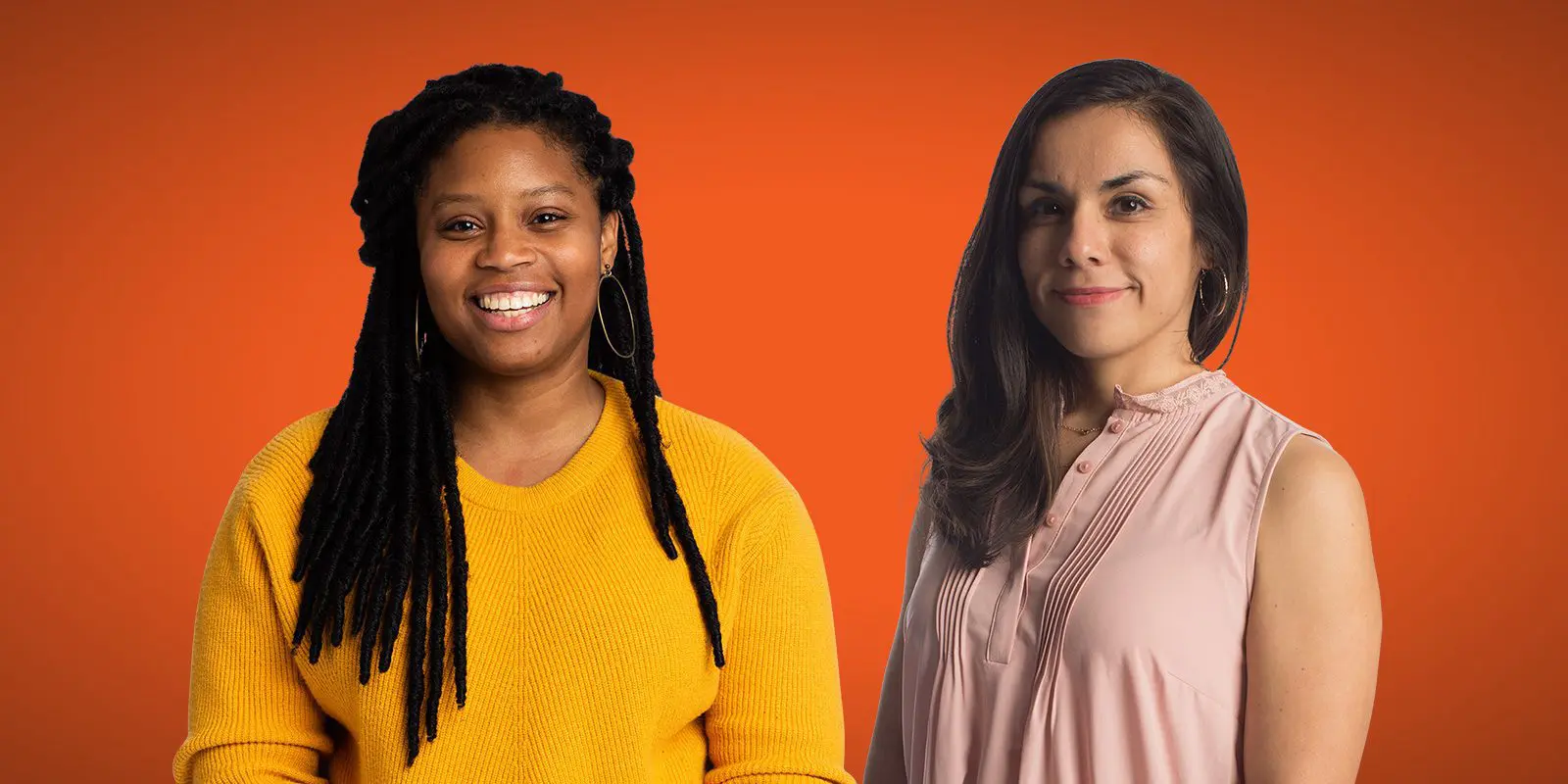In the photo: Ashley Gripper, PhD and current HPRS scholar, (left) and Marcela Nava, PhD and HPRS alum (right)
Finding one’s voice
“Believe that you have something worthwhile to say and share,” Ashley Gripper, PhD, says, summarizing what Teach-Outs are all about. Gripper, whose HPRS scholarship, activism, and advocacy work meet at intersections of environmental health, racial justice, and community organizing, incorporated each of these topic areas into her Teach-Out, “Black Agricultural Solutions to Food Apartheid.”
In developing the learning event’s curriculum, Gripper’s goal was to encourage participants to explore their own historical, spiritual, and ancestral connections to food and land. The series highlights the importance of food sovereignty, rebuilding community, and land-based living, as well as a greater understanding of Black agriculture.
“I hope that participants walk away from this series with an understanding of the many benefits of gardening and farming, including but not limited to collective agency, community care, physical well-being, deepened spiritual connections, economic autonomy, organizing, mobilizing, and improved mental and emotional health,” she said.
A Teach-Out often frames coursework around a call to action or participation in civil discourse. For Gripper, it was important that the Teach-Out include multiple opportunities for people to turn what they learned into action for justice. This could look like volunteering or joining a local food policy and grassroots organization or supporting active campaigns for Black and Native land stewardship.
The learning experience launched on April 1, and Gripper has already felt some of the rewards. “It’s given me an opportunity to stand in the different manifestations of my power, brilliance, and authenticity,” she said. “It’s helped solidify my voice in academic spaces.”
Finding common ground
Marcela Nava, PhD, is an HPRS alum who used the Teach-Out format to share her work. Nava’s research explores how health policy and social determinants of health are shaped by their broader socioeconomic and political framework. Understanding how community leaders, governments, social service organizations, and healthcare systems make decisions propelled her research, adding insights into how and why they may hinder or support efforts to improve health equity, particularly for immigrants, people of color, youth, and women.
In partnership with Shannon Frattaroli, PhD, professor at the Johns Hopkins Bloomberg School of Public Health and associate director of HPRS, Nava developed and launched the free online course, “Let’s Talk About It: A Health and Immigration Teach-Out,” designed to help participants have well-informed discussions about health policies and immigration.
“My interest in social work, public policy, and public health is not only an obligation to my past but a result of it,” Nava said. “One that motivates me to be a resource for others where none exist. All of these things propel me.”
“Let’s Talk About It” brings together first-hand perspectives of researchers, elected officials, healthcare systems, business leaders, and community members, while giving participants the opportunity to test their knowledge about immigration and health. Through understanding and education, Nava believes we can develop local solutions and promote institutional changes that contribute to health equity.
HPRS scholar-led Teach-Outs are fostering community interaction, collective leadership, and shared learning experiences. The program looks forward to sharing the next scholar-led Teach-Outs later this year.

